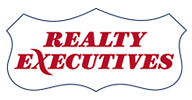
Buying a home is one of the biggest financial decisions you’ll make in your life, and securing the right mortgage is a critical part of that process. Unfortunately, many homebuyers make common mistakes that can lead to financial stress or even derail their homebuying journey. To help you navigate the mortgage process with confidence, here are some key tips to avoid common mortgage mistakes.
1. Not Shopping Around for the Best Rate
Why It's a Mistake: One of the biggest mistakes homebuyers make is not shopping around for the best mortgage rate. Many simply go with the first lender they talk to, missing out on better terms or lower rates elsewhere. Even a small difference in interest rates can save you thousands over the life of the loan.
How to Avoid It: Take the time to compare offers from multiple lenders. Get quotes from banks, credit unions, and online lenders to find the best interest rate and loan terms for your financial situation. Use mortgage comparison tools, and don’t hesitate to negotiate with lenders to get the best deal.
2. Ignoring Your Credit Score
Why It's a Mistake: Your credit score is one of the most important factors that lenders consider when approving your mortgage and determining your interest rate. A low score can lead to higher interest rates, costing you more over the life of the loan.
How to Avoid It: Before applying for a mortgage, check your credit report for any errors and work on improving your score. Pay down debts, avoid applying for new credit, and make sure you’re paying bills on time. Aim for a credit score of at least 620, though higher scores will get you better rates.
3. Not Considering All Costs of Homeownership
Why It's a Mistake: Many buyers focus solely on the monthly mortgage payment and forget about other costs like property taxes, homeowners insurance, maintenance, and closing costs. Underestimating these expenses can lead to financial strain down the road.
How to Avoid It: Create a comprehensive budget that includes all the costs of owning a home, not just the mortgage payment. Factor in utilities, insurance, taxes, and potential maintenance costs. Also, ask your lender for an estimate of closing costs so there are no surprises when it’s time to close the deal.
4. Overstretching Your Budget
Why It's a Mistake: Buying a home at the top of your budget can leave you with little room for other expenses, emergencies, or long-term financial goals. This can lead to stress and difficulty making mortgage payments, especially if your financial situation changes.
How to Avoid It: Stick to a home that you can comfortably afford. A general rule of thumb is to keep your mortgage payment at or below 28% of your gross monthly income. Make sure you leave room in your budget for other financial priorities like retirement savings, vacations, and emergencies.
5. Skipping the Pre-Approval Process
Why It's a Mistake: Some buyers skip the mortgage pre-approval process and jump right into house hunting. Without pre-approval, you may fall in love with a home that’s outside your price range or face delays when it’s time to make an offer.
How to Avoid It: Get pre-approved for a mortgage before you start looking at homes. Pre-approval gives you a clear idea of what you can afford and shows sellers that you’re a serious buyer. It can also speed up the mortgage process once you’re ready to make an offer.
6. Choosing the Wrong Mortgage Type
Why It's a Mistake: There are many types of mortgages, including fixed-rate, adjustable-rate, FHA, and VA loans. Choosing the wrong one for your financial situation can lead to higher costs or financial risk, especially if you’re not fully aware of the terms.
How to Avoid It: Take the time to understand the different mortgage options and choose the one that best fits your financial situation and long-term goals. If you plan to stay in your home for many years, a fixed-rate mortgage may be your best bet for stability. If you plan to move within a few years, an adjustable-rate mortgage might offer lower initial payments.
7. Not Locking in Your Interest Rate
Why It's a Mistake: Mortgage interest rates can fluctuate daily, and failing to lock in your rate early can cost you if rates rise before you close on your home.
How to Avoid It: Once you’ve found a lender and are comfortable with the interest rate, ask your lender to lock in your rate. A rate lock ensures that you’ll get the agreed-upon rate even if interest rates go up before closing. Some lenders may charge a fee for locking in the rate, but it’s usually worth the cost for the peace of mind.
8. Making Major Financial Changes Before Closing
Why It's a Mistake: Taking on new debt, quitting your job, or making other major financial changes before closing on your home can jeopardize your mortgage approval. Lenders typically review your financial situation again before the closing date.
How to Avoid It: Once you’ve been pre-approved and are in the process of closing on your mortgage, avoid making any significant changes to your finances. Don’t apply for new credit, make large purchases, or change jobs without first consulting your lender.
Conclusion
Securing a mortgage is a complex process, but by avoiding these common mistakes, you can increase your chances of getting the best possible deal and ensure a smooth homebuying experience. Shop around for the best rates, stay on top of your credit score, and be mindful of all costs associated with homeownership. With careful planning and smart financial decisions, you’ll be on your way to finding your dream home without unnecessary stress or setbacks.
(This material should not be interpreted as professional or legal advice; rather, it is meant purely for informational purposes.)





